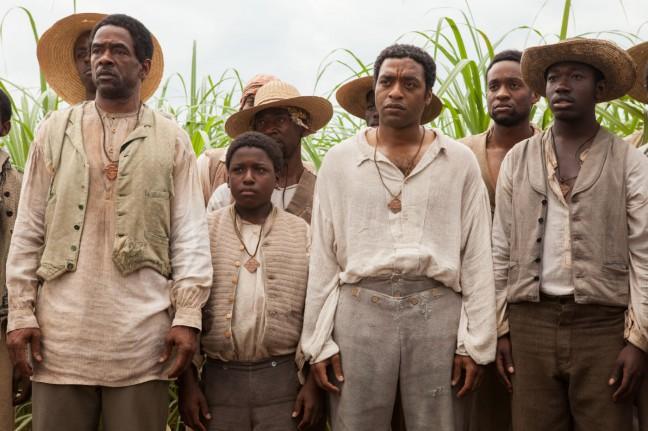Americans have a very hard time thinking about and discussing the past and present implications of slavery in our society.
Although American society makes a point to remember the hardships African Americans have endured over the course of this country’s history, slavery often remains a taboo topic. The thought of stripping a human of all natural rights to life is simply too cruel an idea for most to bear.
The film “12 Years a Slave,” directed by Steve McQueen (“Shame”), is a heart-wrenching portrayal of the plight of a black freeman, Solomon Northup, magnificently portrayed by Chiwetel Ejiofor (“Salt”). After being kidnapped and sold into slavery, we follow Northup along his 12-year journey through the slave South in the 1840s and, in so doing, we are exposed to the torment and horrors therein.
Northup, whose autobiography has been faithfully transferred to screen, is born a freeman in Upstate New York and earns his living as a talented violinist. Northup, who has been commissioned to play a gig in Washington, D.C. by a couple of “friendly” entertainers, awakes bewildered from a drug-induced sleep, chained to a stone wall in a warehouse blocks away from the White House. Suddenly stripped of all liberty, Northup realizes what has happened to him as his kidnappers prepare him for his illegal transport into the South. He does not speak out against his captors for he knows it will do him no good. Northup’s gaze, so full of despair and bewilderment, creates a hugely emotional bond with the viewer.
Upon his arrival in Louisiana, Northup is sold to a wealthy plantation owner named Ford, played by Benedict Cumberbatch (“Star Trek Into Darkness”). Although he is a slave owner, Ford treats Northup with a certain respect; behind his veneer of business pragmatisms, Ford undoubtedly knows there is great shame in owning another man. After Northup stands up to the overseer of Ford’s operations, Ford is forced to sell Northup to a nearby plantation owner. The remainder of Northup’s time in Louisiana is spent on the cotton plantation of Edwin Epps (Michael Fassbender, “Prometheus”). It is here that Northup feels the true sting of slavery.
Through his direction, McQueen portrays Northup’s resilience and determination to endure through an artistic lens. But it’s Ejiofor’s performance as Northup that gives this film its immense weight. Ejiofor’s eyes, which hold such softness and expression, draw the viewer into a state of distress as we long for Northup’s well-being. Yet, compassion is not the only emotion we feel; it is paired with a sense of disgusted outrage with Northup’s captors, most notably Epps.
Fassbender, absolutely dedicated to his role, perfectly inhabits the sociopathic mindset of Epps. Deeply disturbed and alone, Epps directs his madness principally toward the beautiful and emotionally broken Patsey, portrayed by newcomer Lupita Nyong’o, whose piercing performance pulls violently at the viewer’s heart.
In a moment of exceptional cruelty, Epps ties Patsey to a whipping post, lashing her within inches of her life. After such a lengthy emotional experience, one expects McQueen to spare his viewers from watching this horror; when the camera turns to Patsey’s shredded back, the image is nearly suffocating.
“12 Years a Slave” will completely alter the way you think and feel about this part of our country’s history. Through a moving story, brilliant acting and thought-provoking camerawork, the film allows access to emotions one ought to vicariously experience when remembering the women and men who lived and died without the American promises of liberty and justice. The scars of Northup and Patsey indeed live on today and the struggle for ultimate healing must continue.
5 out of 5 stars


